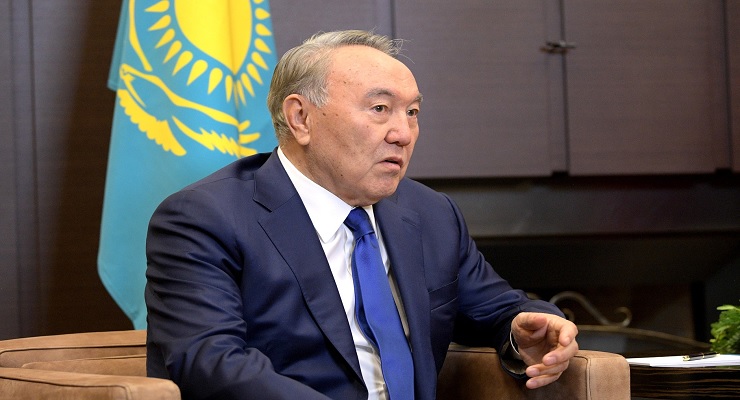
From Voice of America
For the last 30 years, Kazakhstan’s leader has been Nursultan Nazarbaev. The fact that he announced his resignation today was for many a shock, although perhaps not a complete surprise. After all, President Nazarbaev is 78 years old and Central Asia’s only remaining Soviet-era leader.
In his televised announcement, Nazarbaev stated that Kazakhstan’s task under his rule had been “to build a market economy, dismantle the totalitarian ideological system [of the Soviet Union], and modernize all societal institutions,” all in the name of “creating a modern democratic state.”
The president focused his remarks on the notable economic growth and development Kazakhstan has experienced under his rule but glossed over any specific references to political or democratic reforms under his leadership, no doubt because they are far and few between.
When it comes to human rights, Nazarbaev leaves behind a rather poor record.
In Kazakhstan, free speech is suppressed, and independent, critical journalists are harassed or prosecuted for their work. Authorities routinely break up or prevent even tiny peaceful protests criticizing government policies. The government has shuttered the country’s main independent trade union confederation. Kazakh authorities have resorted repeatedly to politically motivated prosecutions and imprisonment to try and silence government critics. Maks Bokaev, a respected human rights activist who was critical of the government’s proposed amendments around leasing of agricultural land in 2016, is serving a five-year prison sentence for nothing more than peacefully expressing his views.
As Nazarbaev steps down as president, a key question is whether and to what degree Kazakhstan will leave behind its authoritarian past and move towards democratic rule (Nazarbaev said the speaker of the Senate, Kassym-Jomart Tokayev, will serve as interim president until elections are held). For that to happen, Kazakhstan’s new leadership should commit to meaningful and tangible political and human rights reforms. Most urgently, authorities should allow political opposition to participate in the upcoming elections and lift restrictions on media and speech freedoms, freedom of peaceful assembly, and association.
For too many years, Kazakhstan’s citizens have not been able to fully enjoy their fundamental human rights. In light of today’s announcement, there is truly no time like the present to turn a new page and guarantee the rights and freedoms to which Kazakh citizens are entitled.
Leave a Reply